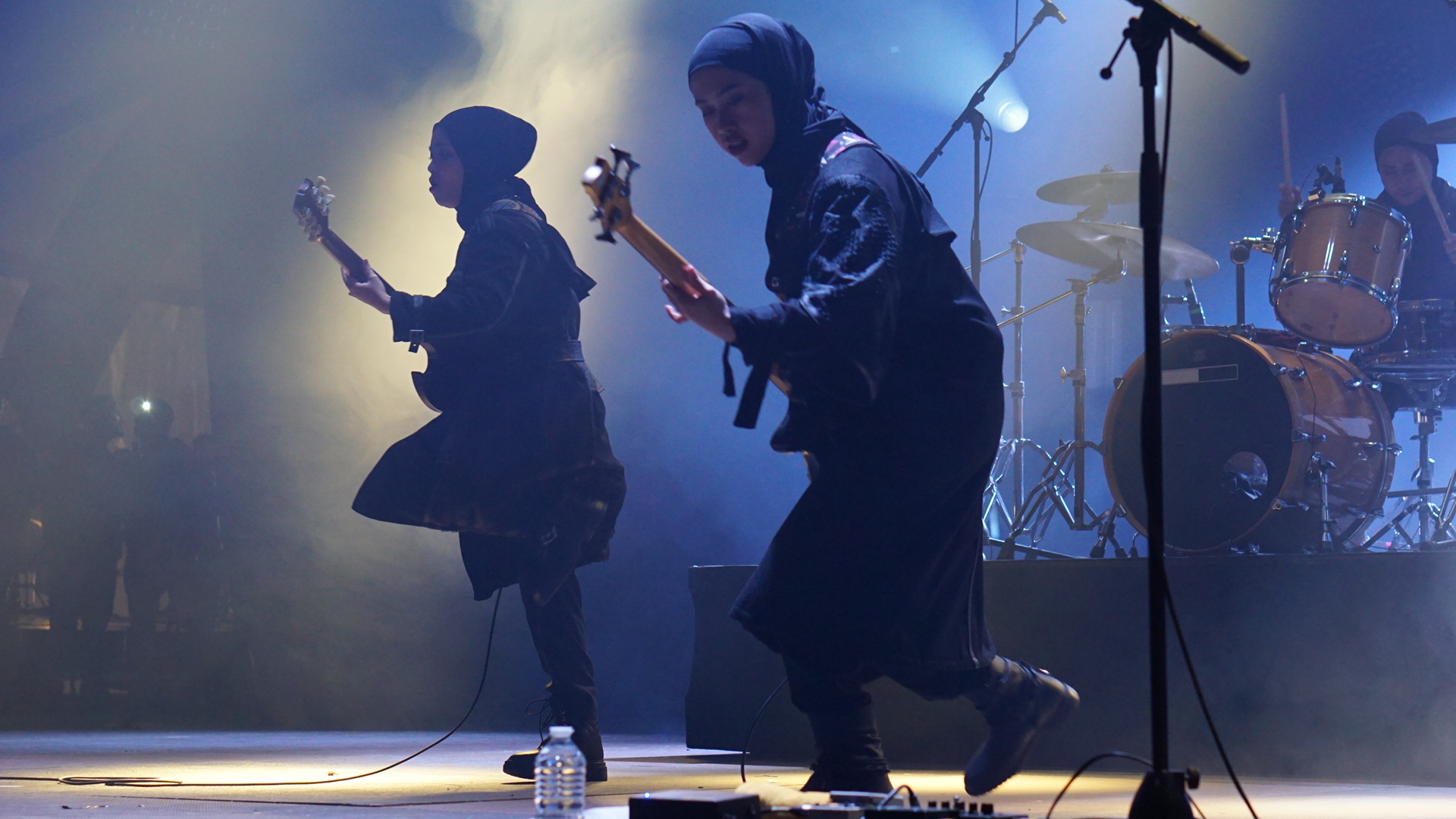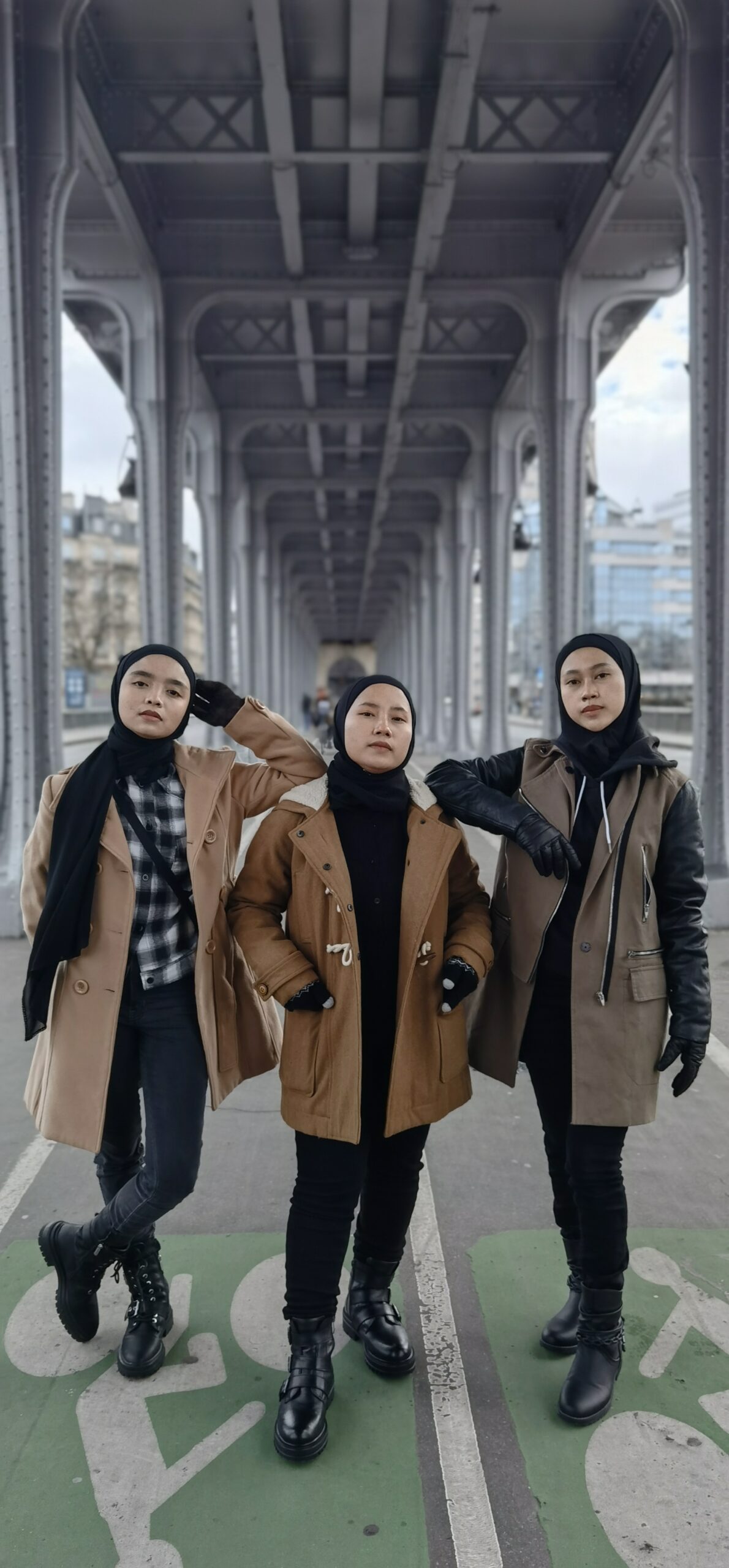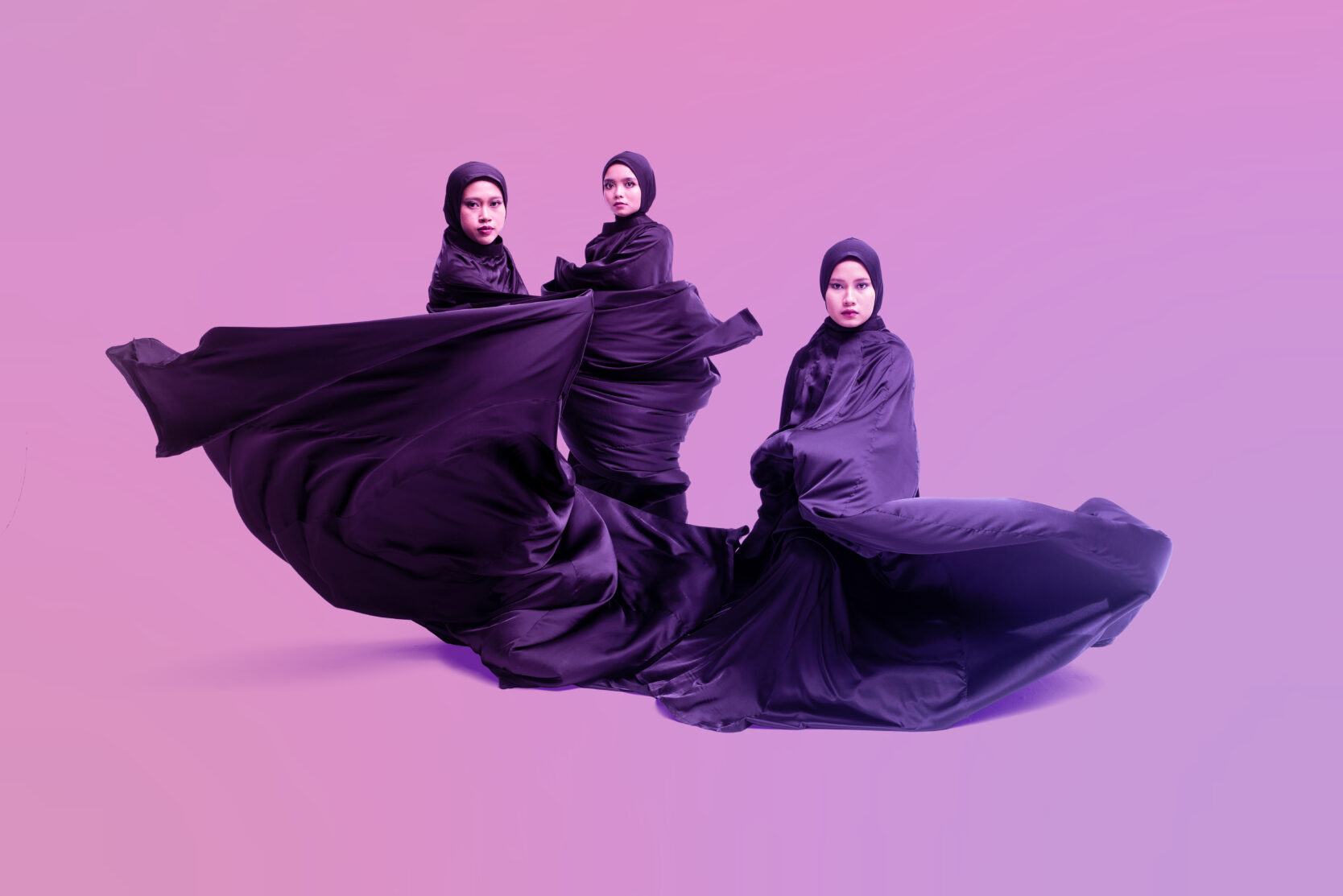When this writer was 15, his passions and obsessions were limited to obscure prog music, Monty Python’s Flying Circus and where to get some of that magical elixir known as beer. When the young women of Indonesian metal band Voice of Baceprot started playing at that age, they honed their abilities and found fans on both sides of the rock ‘n’ roll stage. Now in their early 20s, they’re learning firsthand how having the temerity to play hard rock can be a crash course in having to deal with inequality and patriarchy. It helps that they can throw down a stomping cover of Metallica’s “Enter Sandman” in front of any assembled multitude at a festival like they wrote it themselves.
Not even the most-polished Magic 8-Ball could have predicted Indonesia as being a flashpoint for one of metal’s most promising new outfits. Metal is something that is genuinely celebrated in Indonesia, a social bacchanal for riffs and shredding. Hell, Indonesian president Joko “Jokowi” Widodo has been livin’ la vida metallic for a while now. (Lamb of God’s Randy Blythe described Widodo as “the world’s first heavy metal president,” citing the leader’s love of Metallica, Napalm Death and LoG amongst many others.) The young women of Voice of Baceprot were introduced to each other by the guidance counselor from the school in their village of Garut, assisting in everything from gear acquisition to songwriting assistance.
But Voice of Baceprot (“baceprot” is the Sundanese word for “noisy”) are adding a new dimension to their art. The band—guitarist/vocalist Marsya Kurnia, bassist Widi Rahmawati and drummer Sitti Aisyah—routinely deliver the driving riffage that conjures synovial headbanging and some old-fashioned metal-thrashing-mad sweat. And they still do it wearing hijab, the head coverings worn by Muslim women. But forget about the music: When the band traveled to France, it seemed as though dullard Muslim male and female journalists had an agenda. While the girls say they found the predictable ranting of hardliners both laughable (“Girls are not supposed to play metal music. You should stay at home and cook instead”) and vengeful (“You are going to hell because music is haram [forbidden]”), the frequent, most tiresome question was always centered on their hijab, the Muslim headdress. The follow-up question usually asked if Voice of Baceprot were “being oppressed” and forced to wear them.
Instead of letting the queries slide and sharing eyerolls and laughs about it later, a consciousness was created. What are you people thinking? Why the fuck would you think that? This dovetailed nicely with the news of the U.S. Supreme Court gearing up to repeal Roe vs Wade, the landmark decision legalizing abortion—which also had the band examining everything from body issues to discussion of exactly who owns women’s bodies.

These discussions manifested into a new track, “[Not] Public Property,” the first song the girls wrote as a trio. As a prelude to the single, the video features brief interview clips with women who have been marginalized for everything from lacking the outmoded notions of “ideal appearance” to their own experiences regarding what choices they made about their bodies. (An American delegation of Butcher Babies singer Carla Harvey and Eva Under Fire’s Amanda Lyberg appear in the clip.) Voice of Baceprot backs it up with a lyrical sentiment that no one should have trouble understanding. “This is how the fight will be remembered/and this is how the voice gets louder and stronger,” Marsya sings as the band generates a loping groove that defies both calendars and passports of origin.
“[The song] began with a conversation about how losing authority over our bodies and our lives have become a big problem,” says Marsya on a late-night Zoom call from Jakarta. “Not only in Indonesia, but the Middle East and the USA. And we’re sick of hearing about how people talk about women’s bodies. If male sexual violence were to happen to us, our bodies would be to blame. Everyone wants to interfere about what we should wear or how we should appear in public. So we wrote ‘[Not] Public Property.’”
When asked about how the song has been received, the trio smile widely. “The opinions come in all forms,” offers Sitti, as her bandmates start to giggle. “Some ask about the lyrics, some only like the music, while some didn’t like us or our music at all.” Band dudes with fragile egos, take note: This last comment elicits a round of laughter that feels like Voice of Baceprot have their psychic Kevlar firmly in place when it comes to pointed or severely misguided criticism.
“We were expecting that our songs would be heard by all people,” adds Marsya. “We just want to give our music to people all over the world and maybe they can take something from it. Some of our followers say that because of ‘[Not] Public Property,’ they’ve been able to talk about their experiences and their families’. There was never any doubt or hesitation about writing the song. We’ve learned that even in developed countries like the U.S., women are still being discriminated against. Now, it has become a global issue.”
“There’s not much difference wherever it is,” Widi adds. “Women’s rights are always subject to the power of those who see women as a threat. The main problem is that women are always considered second-class creatures that are only to complement [men]. It is the same here in our country as it is in the U.S.”
Here in 2022, women playing heavy metal is not the den of unicorns it may have been impossible to envision previously. But more importantly, Voice of Baceprot—like multicultural LGBTQIA dance-punks Meet Me @ the Altar and buzzsaw punk-poppers The Linda Lindas—have developed significant socio-political worldviews. While entire empires are built on marketing toward young women in the most vacuous ways, these bands have no time for empty popular culture and marketing come-ons when racism, inequality, and #MeToo are waiting to derail further progress in humanity. Voice of Baceprot have been derided more than a few times for wanting to change centuries-old cultural/patriarchal order. “I’m not the criminal/I’m not the enemy/I just want to sing a song to show my soul,” Marsya sings on the decisive track “God, Allow Me (Please) to Play Music.”
“We realize that one of the risks in having the courage to make change is that we will inevitably run into people who will feel upset about it,” she says. “It is perfectly natural for women who are aware of the authority over their bodies to have to deal with people like them.”

While the trio pledge allegiance to metal and hold no quarter in their politics, they’re still young enough to enjoy the ride. So when Slash invites the girls backstage during a Guns N’ Roses show in Jakarta, of course, they’re going to clutch their laminates for dear life. And when their record label gets them on Zoom with Tom Morello, they are going to hang on every single consonant that comes out of his noggin. Voice of Baceprot aren’t in a hurry to get old and jaded, but neither are they waiting around to be thrown in someone’s exploitation machine and piped into a gaping pop-music wormhole.
Voice of Baceprot are determined to detonate your preconceived notions as to what a metal band “should” sound or look like. And if they can raise some consciousness in the process, they’ll gladly drop some W’s in their score column. Get on their train now or lie about it to your friends a year from now. So far, they seem to be doing everything right, from enjoying their time together to pissing off their parents.
“Even our parents hate change,” says Marsya. “They don’t like our music. They’re like [faux yelling] ‘This is it? You just scream to people?’” As the laughter in the room subsides, she pushes politics to the side to reveal their biggest dreams. “Our biggest dream is for us to play a U.S. tour,” she says. “But for us, the most important thing is happiness. And our friendship.”




